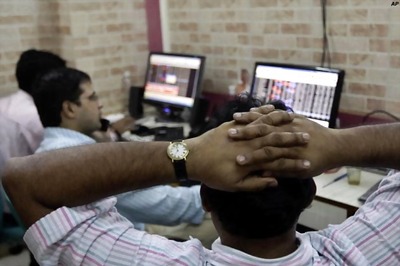
views
The Indian currency has plunged nearly 2.91% since Donald Trump's victory in the US Presidential polls earlier this month on account of capital outflows after rising US bond yields and a strong dollar. On Wednesday, the rupee has been sharply depreciated in its nine-month low against the US currency.
Here is an explainer on a weaker rupee and its impact on country's economy.
Why is the rupee weakening?
There are many factors. Speculation that the US Federal Reserve may increase interest rates next month has strengthened the dollar. Yields on US government bonds have risen, forcing many investors worldwide to plan a part of their investments into US bonds.
Are there any domestic reasons?
The demonetisation move announced earlier this month is expected to hurt economic growth this quarter, and maybe even the next. Exporters have been hit badly and they are struggling to meet order deadlines. This could impact the flow of dollar earnings. Also, interest rates are expected to fall. This could lead to foreign institutional investors reducing their exposure to government securities.
What about the redemption of NRI deposits raised in 2013 during the rupee crisis?
Yes. That too will add to the pressure as the RBI has to buy dollars from the market. Till last month, the RBI had said that it would be able to meet the redemptions – roughly USD 24 billion -- without too much impact on the rupee. But the scenario has changed over the last few weeks because of demonetization and an increased probability of a rate hike in the US.
How does a weak rupee affect equities?
A weak rupee shrinks the value of a foreign investor’s portfolio. That is because he will now get fewer dollars when he wants to take his money back home. Usually when the rupee weakens, FIIs start pulling out money from equities as a pre-emptive move, fearing that the value of their portfolio will reduce further.
Does FII selling have an impact on the rupee value?
Yes. If too many FIIs decide to take their money out, it will lead to an increased demand for dollar, strengthening it further. Conversely, this means a weaker rupee.
But does not a weaker rupee mean that FIIs can buy more equities for the same amount of dollars?
In theory, yes. But a weak rupee more often than not signals problems in the economy, and by extension, weak corporate earnings.
Do FIIs sell at the first signs of weakness in the rupee?
Not necessarily. FIIs factor in a certain margin of volatility in the rupee when investing in India. If the rupee falls beyond their comfort level, FIIs start selling equities.


















Comments
0 comment